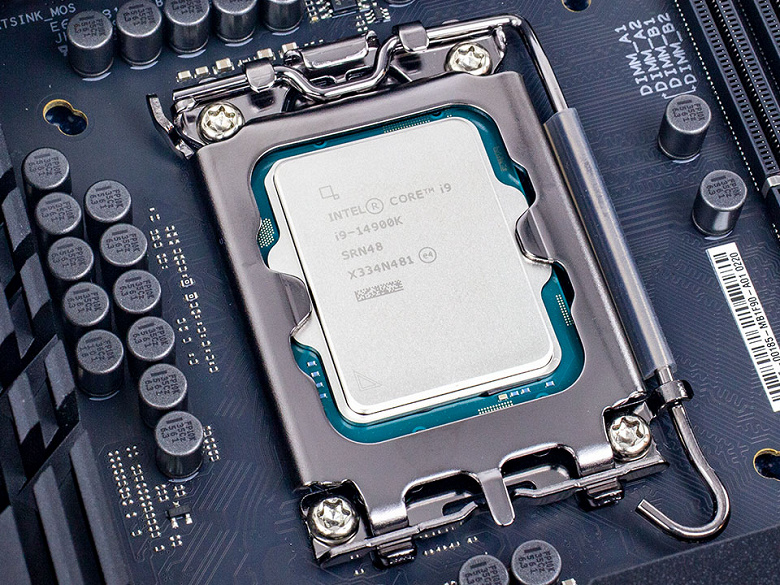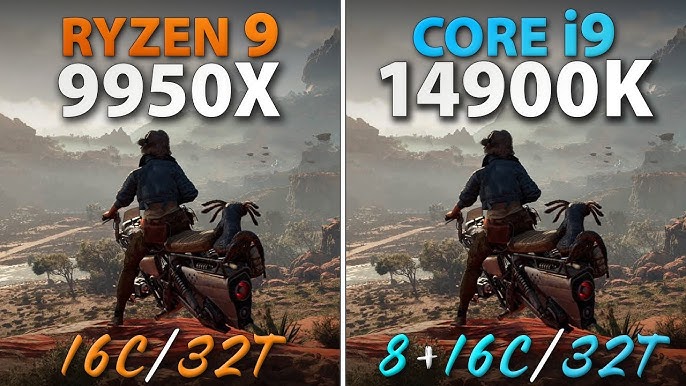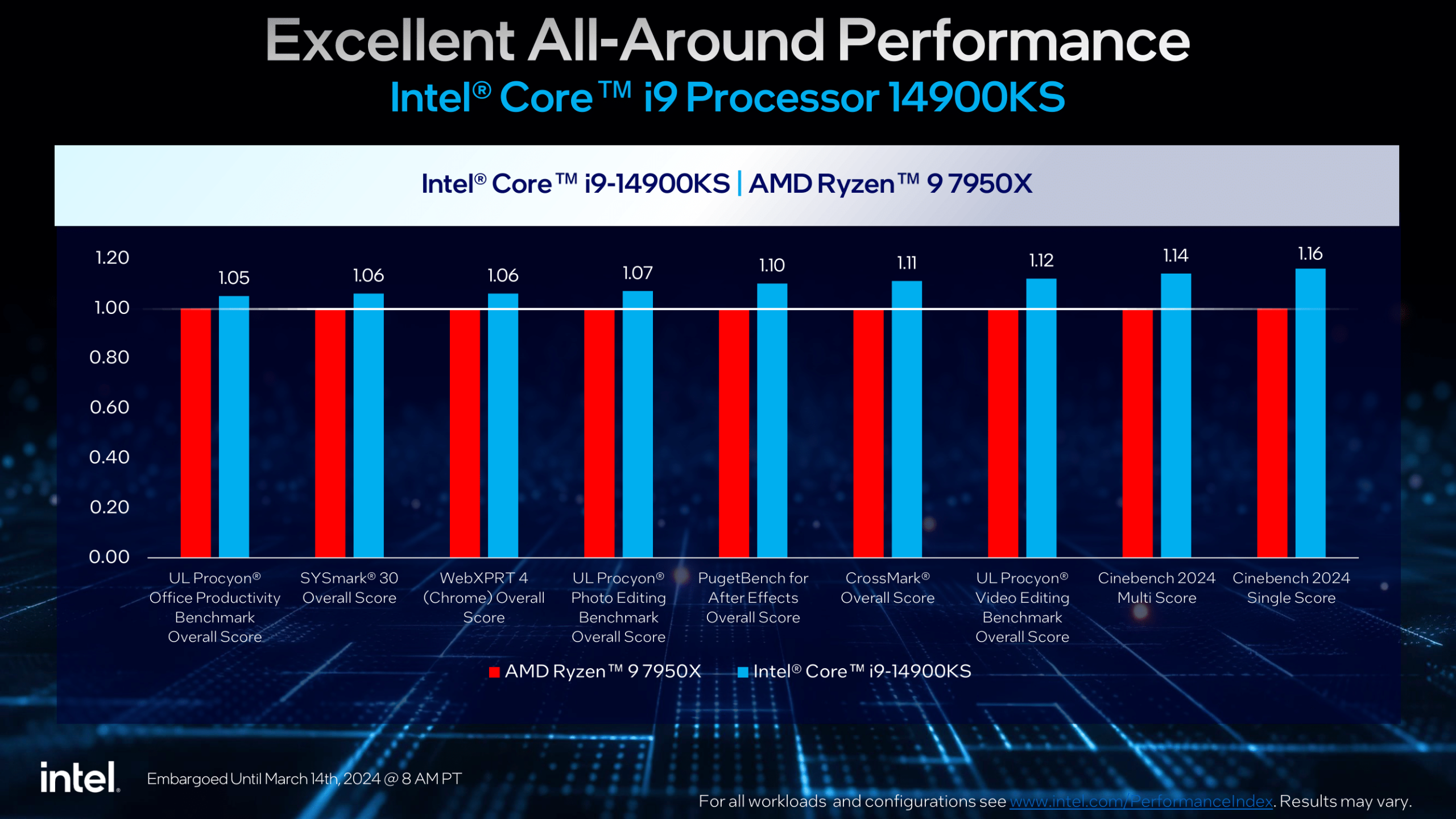On average, there is almost no difference between the new and old generations
Yesterday, Intel introduced the Core i9-14900K/KF, Core i7-14700K/KF, and Core i5-14600K/KF processors of the Raptor Lake Refresh generation. Today their reviews appear on the Internet.

Let us remember that only Core i7 models received more cores than their predecessors, while all other new products are content with only increasing frequencies.
Because of this, which is logical, the performance increase for all new models, except for the Core i7, is not particularly large.
If we talk about the Core i5-14600K, on average, according to TechPowerUp tests, in various applications this CPU is only 2-3% faster than the Core i5-13600K, and this difference can be neglected. In games, as expected, the situation is the same. Interestingly, the consumption of the new product is slightly lower than that of its predecessor: 93 W versus 105 W. This is an average based on data from 47 applications.



The Core i9-14900K is the same amount faster than the Core i9-13900K, which makes the new product identical to the Core i9-13900KS model. The latter was simply renamed Core i9-14900K since even the frequencies of these CPUs are the same.
The Core i7-14700K can be called the most interesting among the new products, especially considering the unchanged price. However, this is only on paper. In reality, the increase is also very modest. The new CPU is on average faster than the Core i7-13700K by about 5%.
Of course, as always, when it comes to modern multi-core processors, you need to look at those tests that are important to a particular user. Because, for example, in Blender Core i7-14700K is no longer 5%, but 14% faster than its predecessor. And in several other applications that actively use all cores, the situation is approximately the same, since after all, the new CPU has four more small cores.
Overall, however, the new generation is, as expected, only a very slight acceleration of the previous generation. Intel needs new CPUs to fill the gap before the release of Arrow Lake, which is not expected until the end of 2024.




